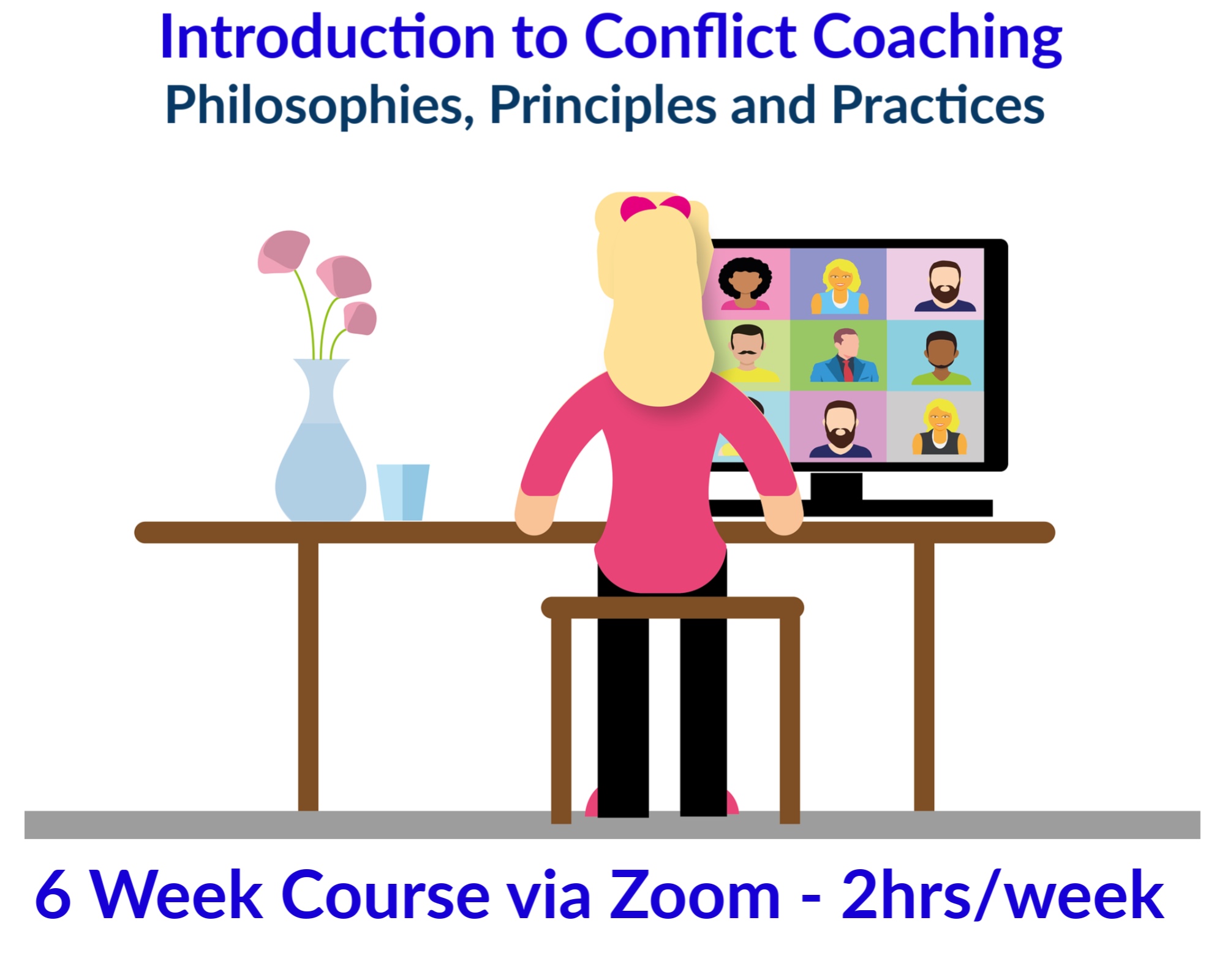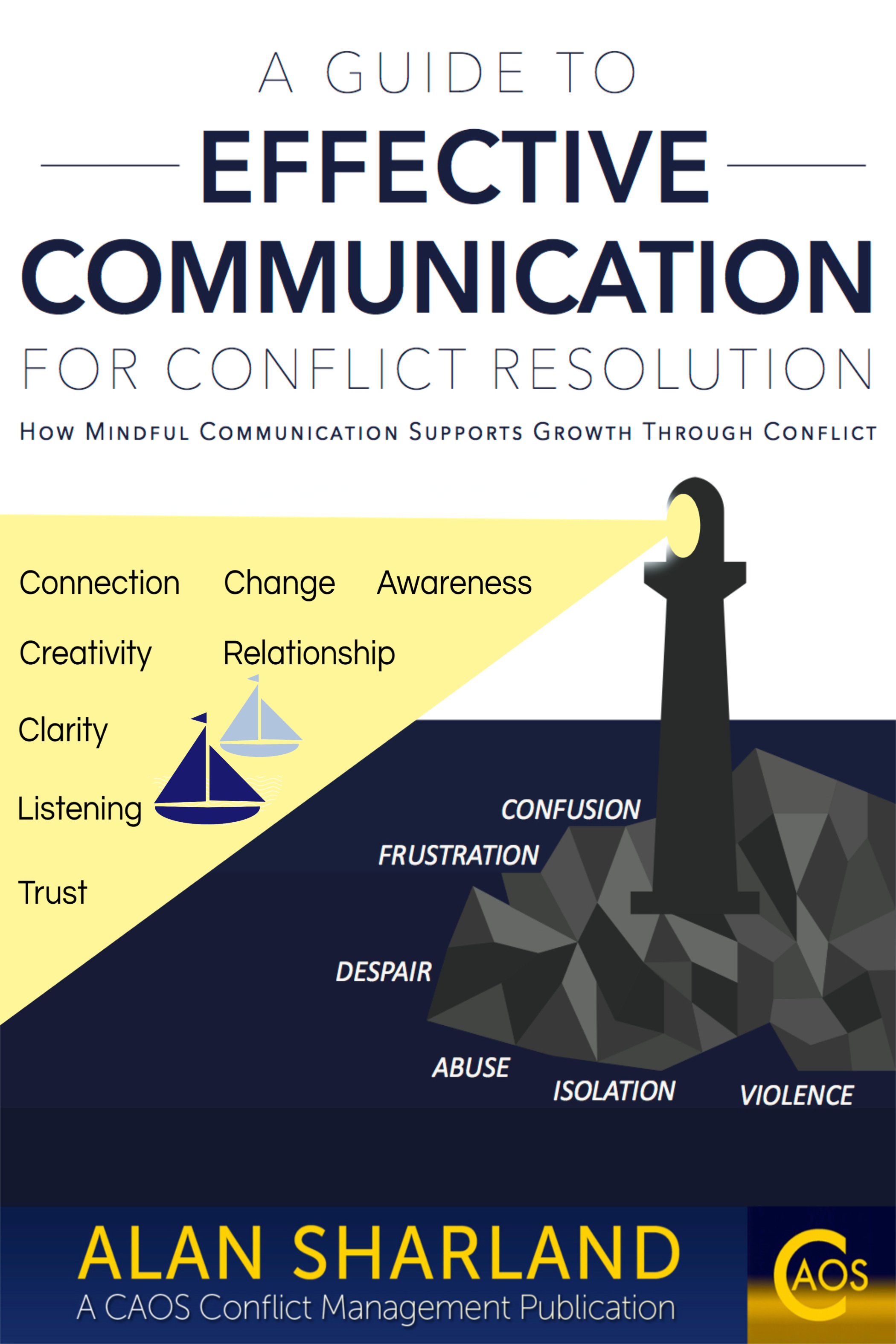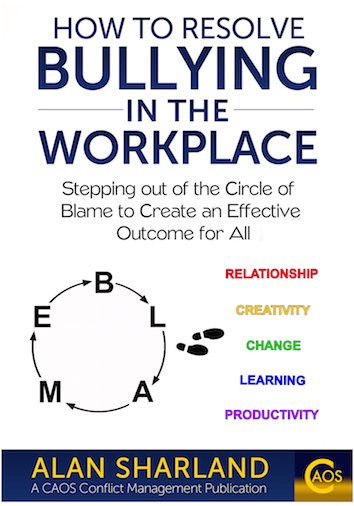Contact CAOS Conflict Management on 020 3371 7507
Exploring a No-blame Workplace Culture
No-Blame Culture
A Workshop to Explore What It Is and How It Works..or Doesn't!
The workshop is an opportunity to explore what is meant by a 'No-blame Culture' and how it can be implemented in our own personal lives as well as in our organisational practices.
The fee for the workshop is £175 and there will be a maximum of 8 attendees. Charitable rate and individual rate also available. Please indicate in form below if you wish to apply for this.
Please fill out the form below if you would be interested in attending the next workshop.
Developing a No-blame Culture is starting to become an idea of interest having been frequently dismissed in the past as unworkable, or unethical or 'avoiding responsibility'.
But we already see a 'no-blame approach' being introduced into aspects of the NHS via the Healthcare Safety Investigation Branch and the idea of a 'no-fault divorce' is being considered by Government.
The concept and practical implementation of a no-blame culture is ripe for exploration even in the face of a long established 'blame culture' that is integrated into most of our public services. Most complaints, difficult working relationships, and community and family issues are directed to adversarial, fault-seeking or blame-assessing processes when they come to the attention of our public services and within most businesses and other organisation.
Media reports will often seek to find out and identify 'who is to blame' for distressing, worrying events that happen in politics and daily life, including for the consequences of natural disasters.
The 'blame culture' is everywhere it seems. But there also seems to be some doubts emerging about whether it 'works' or not.
Perhaps it works in some contexts and applications and not in others and we need to develop a more nuanced understanding of its suitability in different circumstances?
Accountability: The obligation of an individual or organisation to account for its activities, accept responsibility for them and to disclose the results in a transparent manner. (www.businessdictionary.com)
'All are accountable,
no-one is to blame!'
Exploring the possibilities for a No-blame Culture
So what constitutes a 'no blame culture' and what can organisations do to implement it and what can individuals learn from the idea?
Conversely, what can organisations learn from individuals who may already adopt an approach in life that can be described as 'no-blame'?
Mediation is a process that aligns with a 'no-blame culture'. The purpose of the process is not to allocate blame or fault but to review the difficulties, breakdowns, mistakes, failures and other aspects of an unresolved conflict in order to use the opportunity to create something more effective and sustainable for the future. It treats any such situation as a 'learning opportunity' and is able to do so because the Mediator is not present to give a view about who is 'right' and who is 'wrong', or who is 'at fault' and who is the 'victim'.
The Mediator's impartial conduct ensures there is not a need for participants in the process to 'present an argument for consideration' by the Mediator about who is right or wrong but to simply share their perspective and opinions about the situation to the other participant(s) with a view to creating a better way forward in the future.
It may not always be the case that participants initially come with an openness to that intention and do see the other participant as 'to blame' but the mediation process itself cannot be used to further such an intention. Its purpose is to provide a 'no blame culture or environment' so that the focus can be on learning and change.
The thinking behind the no-blame culture implicit within the mediation process provides a foundation for exploring the idea of such a culture being implemented in other contexts.
We are therefore offering this interactive workshop to help participants explore this increasingly popular but still ambiguous concept so that they can gain a stronger insight into what a no-blame culture might look like and how they can, if they see it to have benefit, implement it within their organisation and/or within their own lives.
The workshop will be a one-day event, held at a venue in West London and will cost £195 to attend.
Please register your interest via the form below so that we can notify you of the date for the next workshop.
Charitable organisation discount available, please ask about this when making contact.
Who is it for?
We see the workshop as being particularly suitable for HR staff and complaints managers, those responsible for managing grievance procedures within their organisations, and anyone interested in responding less formally to situations via a 'no-blame approach' who may wish to explore more about what it involves and how it can be implemented. The workshop could also therefore be of interest to parents, teachers, housing officers and others who have to manage difficult situations and strained working or personal relationships.
If applying on behalf of a group with a more specific focus for use of a no-blame approach the day can also be tailored to exploring that particular context for application.
The day can be provided in-house for organisations wanting a team introduction to the thinking and practices of a no-blame culture. Please use the form below to enquire about an in-house workshop for your organisation.
Join our Online course:
An Introduction to the Philosophies, Principles and Practice of the CAOS Model of Conflict Coaching - Click this link to find out more
A Guide to Effective Communication for Conflict Resolution - How Mindful Communication Supports Growth Through Conflict.
Mediation from CAOS Conflict Management
CAOS Conflict Management provides mediation in all types of dispute situations but links to some of the main areas are given below:

University Mediation including student complaints and accommodation disputes.
Please click the image above or the text below to purchase this book written by Alan Sharland, Director of CAOS Conflict Management:

Equality and Diversity Mediation








